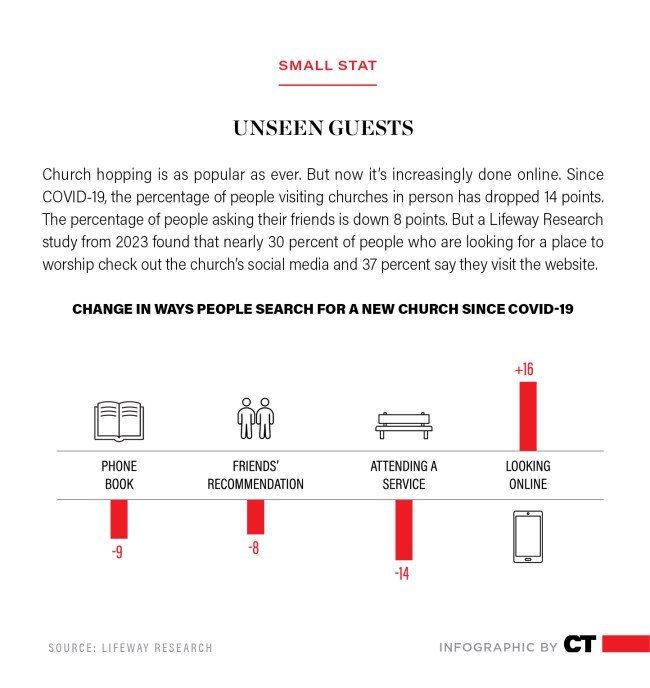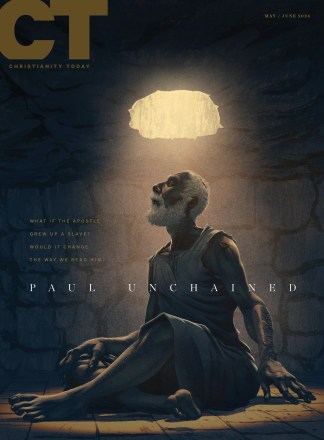Two Christian brothers have been acquitted of charges of blasphemy. Umar and Umair Saleem, known as “Rocky” and “Raja,” respectively, were accused by other Christians of defiling the Quran and making derogatory remarks about Muhammad, “deliberate and malicious acts intended to outrage religious feelings.” The accusations were announced over mosque loudspeakers and sparked anger in the northeastern town of Jaranwala. Mobs attacked dozens of Christian homes and about 20 churches. A police investigation, however, found nothing to substantiate the charges, and the two were released in March 2024. The brothers’ lawyer said they were framed by fellow believers because of “personal enmity.” The Saleems do not believe it is safe to go home.
India: Jonah translated into sign language
The Book of Jonah has been translated into sign language in Nagaland, a state in India with a distinct sign language and more than 100,000 hearing-impaired people. “We are sowing a seed for the Deaf community,” Bible Society of India director W. Along Jamir said, “and this reminds us of God’s faithfulness.”
Korea: Pastor abused teenage defectors
An evangelical pastor once hailed as a hero for helping people escape North Korea has been sentenced to five years in prison for sexually abusing teenagers. Chun Ki-won, 67, claims to have helped more than 1,000 defectors get out of the authoritarian state, with the goal of sharing the gospel, sending converts back, and seeing God’s grace “sweep over the starving, exhausted land of North Korea.” Chun’s work was praised by the BBC, CNN, The New York Times, and National Geographic. According to a South Korean court, however, there was “irrefutable” evidence that Chun harmed five students at a boarding school.
Armenia: Baptist going to prison for rejecting military
A criminal court rejected the appeal of a 20-year-old Baptist man sentenced to prison for refusing military service. Davit Nazaretyan says his faith prohibits him from fighting because Jesus taught his followers to “love one another, even our enemies, and not kill people.” However, an Armenian Orthodox bishop testified the young man’s religious beliefs “would not be restricted by military service,” and the court chose to believe him. Nazaretyan faces two years in prison.
Iran: Christians arrested more in summer
More than 160 Christians were arrested in Iran in 2023. According to a report from four groups defending freedom of religion and helping persecuted Christians, the arrests increased dramatically in summer months, when authorities were worried about public protests.
Kenya: Evangelical Alliance supports Israeli olive oil
The Evangelical Alliance of Kenya is protesting a grocery store chain’s decision to stop stocking olive oil imported from Israel. A letter from the evangelical group said Carrefour’s decision not to stock olive oil interferes with the religious rights of shoppers and needlessly politicizes grocery shopping. Some younger Kenyans have been boycotting Israeli businesses and products, arguing the Jewish state is committing war crimes in Gaza. The evangelical group has called for a ceasefire in the Israel-Hamas conflict but nonetheless opposes corporate pressure on Israeli businesses.
Nigeria: Catholics warned of Pentecostal “invasion”
An ordained scholar told a council of bishops that the Catholic church should worry less about blessings of same-sex couples and more about Pentecostal growth in Nigeria. Anthony Akinwale, a professor in Lagos, told the church leaders that “our Catholic space has been invaded.”
Northern Ireland: Study finds many evangelicals
Twenty-one percent of people identify as practicing evangelical Christians in Northern Ireland, according to a new sociological survey, including nearly half of all Protestants and more than one-third of Catholics. Thirty-five percent of those ages 18 to 24 identify with the term.
Argentina: Soup kitchens get government funding
The new libertarian government is partnering with the Christian Alliance of Evangelical Churches of Argentina to fund 723 soup kitchens that feed an estimated 36,000 people, giving Christians 177 million Argentine pesos (roughly $200,000 USD) to purchase food. President Javier Milei, who describes himself as an anarcho-capitalist, was elected in December 2023. He passed monetary reforms that devalued the peso by more than 50 percent and cut spending on subsidies and welfare programs, including funds for soup kitchens, before directing some money to church groups. Hugo Márquez, a pastor with the evangelical alliance, said the partnership does not signal “political agreement,” despite the “lying fantasy of the progressive groups.”
United States: Landmark tower restored
An Independent Christian Church in Columbus, Indiana, has completed a $3.2 million renovation of its iconic 166-foot tower. The 1942 Stone-Campbell church is considered a landmark of Modernist architecture and is one of the first constructed in the style in the US. Architect Eliel Saarinen, whose work inspired many skyscrapers built in Chicago, believed the popular Gothic- and Georgian-style churches of his time were indulgent and overly theatrical and couldn’t address contemporary spiritual needs.
Starting last year, construction workers stabilized the top of the tower, repaired miles of cracks, fixed water damage, installed a powerful new ventilation system, put up a limestone lintel, replaced thousands of spalled bricks, and restored the church clock.
 Remembering the Christian Past, by Robert L. Wilken (Eerdmans, 180 pp.; , paper). Reviewed by Christopher Hall, who teaches biblical and theological studies at Eastern College.Robert Wilken, professor of the history of Christianity at the University of Virginia, possesses a well-developed memory, and he clearly desires to lengthen that of his readers. Wilken has spent many fruitful years exploring the world of the early church. His books include an analysis of Saint John Chrysostom’s response to Judaism in the fourth century (John Chrysostom and the Jews), an insightful study of how the Roman world understood the early Christians (The Christians as the Romans Saw Them), and more recently a treatise on the central place of Palestine in Christian history and reflection (The Land Called Holy). In Remembering the Christian Past, Wilken gathers together a series of essays, many previously published in journals including Pro Ecclesia, First Things, and the Journal of Early Christian Studies.Throughout these essays, one clear theme surfaces repeatedly. Many modern Christians find themselves rootless and drifting in a barren secular and ecclesiastical landscape, largely because they have forgotten their past. Indeed, the modern mind, Wilken argues, has lost any “sense of obligation to the past.” Instead, modern thinkers, including a number of modern theologians, have purposely limited their reliance upon past ideas and traditions, viewing autonomous reflection as the heart of rationality. One discovers truth only by purposefully separating oneself from the object of knowledge. For the modern Christian, this autonomous stance has spawned an unrelenting suspicion of tradition.David Tracy, for example, contends that while the “traditional Christian theologian … preached and practiced a morality of belief in and obedience to the tradition and a fundamental loyalty to the church-community’s beliefs,” modern theologians must commit themselves to the methodology of the natural and social sciences, what Tracy identifies as the “ethical model of the autonomous inquirer.”The result is a tendency to produce theology in a context (the university) and with a stance (Tracy’s autonomous inquiry) that ironically and unnecessarily divorces the theologian from the very religious community in which theological exploration and reflection finds its roots. Wilken observes that while “Christian faith has always been a critical and rational enterprise, and at its best has welcomed the wisdom of the world into the household of faith,” the wisest Christian thinkers also recognized they were “bearers of tradition,” a tradition founded on Scripture, subjected to critical examination, tested in the lives of “countless men and women,” defended against critics, and “elaborated in myriad social and cultural settings.”Hence Wilken’s bafflement over “why one should assume, as Tracy apparently does, that reason is to be found only outside of tradition, and that genuine rationality requires ‘autonomy.’ This premise seems to invite a willful amnesia, a self-imposed affliction that would rob our lives of depth and direction.”The short memory of modern theology too often creates insularity rather than insight. Do other fields of intellectual endeavor so peremptorily dismiss the contributions of the past? Most assume that “immersion in tradition is the presupposition for excellence and originality.” Take, Wilken urges, the example of the jazz musician. “How often we are admonished not to let the old traditions be forgotten. Why? Surely not for historical or archaeological reasons, but because musicians, like painters and writers and sculptors, know in their fingertips or vocal cords or ears that imitation is the way to excellence and originality.”Human reason refuses to function within a vacuum. Rather, as Wilken puts it, it is “bound within rather than outside of things; it is not an abstract quality that exists independently in the human mind.” If so, it is inherently and immensely reasonable to “allow one’s hands to be guided by a master, and foolish to go it alone, as though one could learn to play the violin or sculpt a statue by studying a set of instructions.”The same can be said for the intellectual life and theological work. If, as Wilken argues, the “way we learn to think is by reading good thinkers and letting their thoughts form our thoughts,” best to submit oneself to learning from those writers who have demonstrated their trustworthiness over time, those who have been tested by the years and found reliable interpreters of God’s redeeming act in Christ. For those committed to either an Enlightenment or a postmodern perspective, such a suggestion must seem hopelessly naive. Within these camps, authority, particularly from the past, reeks of the quest for power and the will to dominate.Wilken, though, reminds us with Augustine that “authority” can designate trustworthiness rather than power, a trust established “through teaching with truthfulness,” residing “in a person who by actions as well as words invites trust and confidence. … The student’s trust is won not simply by words but also by actions, by the kind of person the teacher is—in short, by character.”Bracing words, these. If Wilken is right, his perspective offers a radical alternative to the exaggerated epistemological and theological individualism prevalent today. Christians, he insists, will find their identity only by recalling an unimagined world, a world that pursued truth with the mind in the heart—a community that insisted that how and what one thinks, who one is, and how one lives is a whole inseparable from the early story of the church.Copyright © 1996 Christianity Today. Click for reprint information.
Remembering the Christian Past, by Robert L. Wilken (Eerdmans, 180 pp.; , paper). Reviewed by Christopher Hall, who teaches biblical and theological studies at Eastern College.Robert Wilken, professor of the history of Christianity at the University of Virginia, possesses a well-developed memory, and he clearly desires to lengthen that of his readers. Wilken has spent many fruitful years exploring the world of the early church. His books include an analysis of Saint John Chrysostom’s response to Judaism in the fourth century (John Chrysostom and the Jews), an insightful study of how the Roman world understood the early Christians (The Christians as the Romans Saw Them), and more recently a treatise on the central place of Palestine in Christian history and reflection (The Land Called Holy). In Remembering the Christian Past, Wilken gathers together a series of essays, many previously published in journals including Pro Ecclesia, First Things, and the Journal of Early Christian Studies.Throughout these essays, one clear theme surfaces repeatedly. Many modern Christians find themselves rootless and drifting in a barren secular and ecclesiastical landscape, largely because they have forgotten their past. Indeed, the modern mind, Wilken argues, has lost any “sense of obligation to the past.” Instead, modern thinkers, including a number of modern theologians, have purposely limited their reliance upon past ideas and traditions, viewing autonomous reflection as the heart of rationality. One discovers truth only by purposefully separating oneself from the object of knowledge. For the modern Christian, this autonomous stance has spawned an unrelenting suspicion of tradition.David Tracy, for example, contends that while the “traditional Christian theologian … preached and practiced a morality of belief in and obedience to the tradition and a fundamental loyalty to the church-community’s beliefs,” modern theologians must commit themselves to the methodology of the natural and social sciences, what Tracy identifies as the “ethical model of the autonomous inquirer.”The result is a tendency to produce theology in a context (the university) and with a stance (Tracy’s autonomous inquiry) that ironically and unnecessarily divorces the theologian from the very religious community in which theological exploration and reflection finds its roots. Wilken observes that while “Christian faith has always been a critical and rational enterprise, and at its best has welcomed the wisdom of the world into the household of faith,” the wisest Christian thinkers also recognized they were “bearers of tradition,” a tradition founded on Scripture, subjected to critical examination, tested in the lives of “countless men and women,” defended against critics, and “elaborated in myriad social and cultural settings.”Hence Wilken’s bafflement over “why one should assume, as Tracy apparently does, that reason is to be found only outside of tradition, and that genuine rationality requires ‘autonomy.’ This premise seems to invite a willful amnesia, a self-imposed affliction that would rob our lives of depth and direction.”The short memory of modern theology too often creates insularity rather than insight. Do other fields of intellectual endeavor so peremptorily dismiss the contributions of the past? Most assume that “immersion in tradition is the presupposition for excellence and originality.” Take, Wilken urges, the example of the jazz musician. “How often we are admonished not to let the old traditions be forgotten. Why? Surely not for historical or archaeological reasons, but because musicians, like painters and writers and sculptors, know in their fingertips or vocal cords or ears that imitation is the way to excellence and originality.”Human reason refuses to function within a vacuum. Rather, as Wilken puts it, it is “bound within rather than outside of things; it is not an abstract quality that exists independently in the human mind.” If so, it is inherently and immensely reasonable to “allow one’s hands to be guided by a master, and foolish to go it alone, as though one could learn to play the violin or sculpt a statue by studying a set of instructions.”The same can be said for the intellectual life and theological work. If, as Wilken argues, the “way we learn to think is by reading good thinkers and letting their thoughts form our thoughts,” best to submit oneself to learning from those writers who have demonstrated their trustworthiness over time, those who have been tested by the years and found reliable interpreters of God’s redeeming act in Christ. For those committed to either an Enlightenment or a postmodern perspective, such a suggestion must seem hopelessly naive. Within these camps, authority, particularly from the past, reeks of the quest for power and the will to dominate.Wilken, though, reminds us with Augustine that “authority” can designate trustworthiness rather than power, a trust established “through teaching with truthfulness,” residing “in a person who by actions as well as words invites trust and confidence. … The student’s trust is won not simply by words but also by actions, by the kind of person the teacher is—in short, by character.”Bracing words, these. If Wilken is right, his perspective offers a radical alternative to the exaggerated epistemological and theological individualism prevalent today. Christians, he insists, will find their identity only by recalling an unimagined world, a world that pursued truth with the mind in the heart—a community that insisted that how and what one thinks, who one is, and how one lives is a whole inseparable from the early story of the church.Copyright © 1996 Christianity Today. Click for reprint information.











